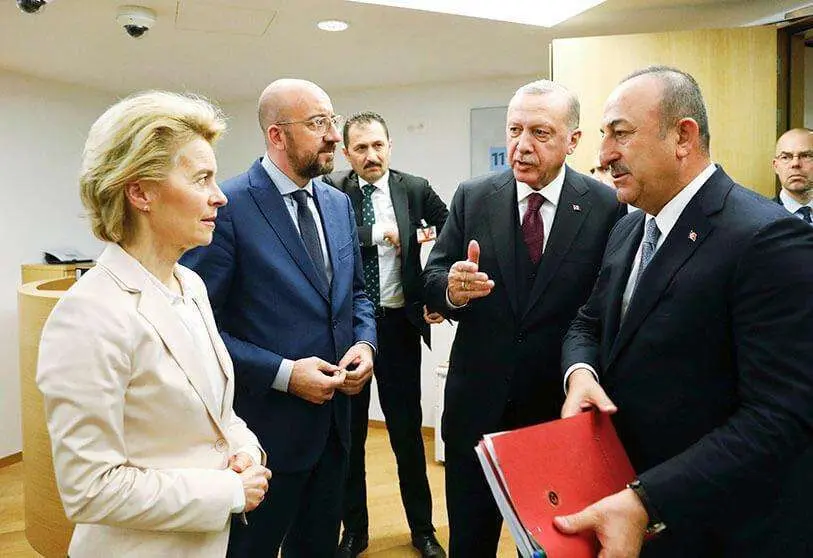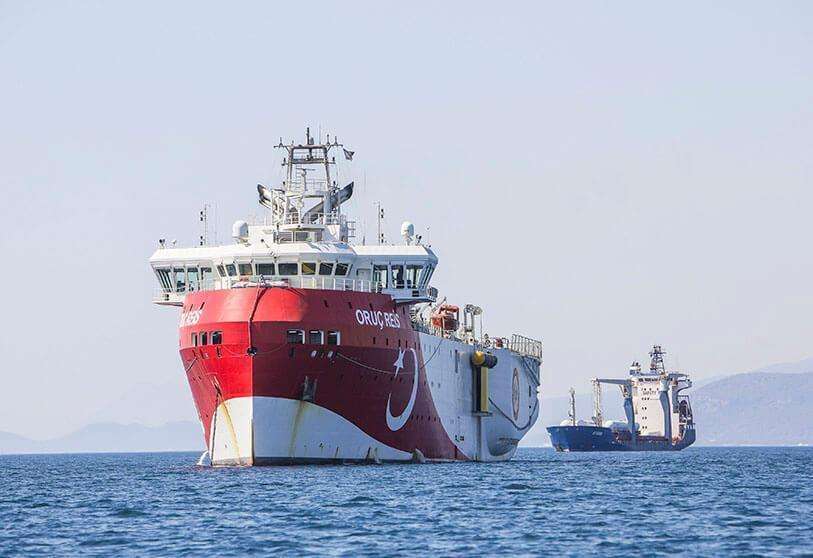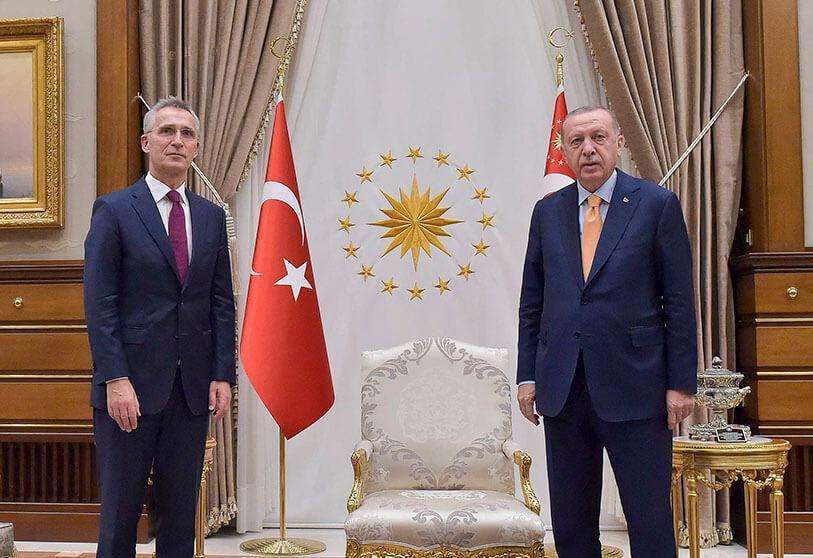EU prepares December summit with possible sanctions against Turkey

Turkey wanted to come to Brussels before the December summit. The tension in the eastern Mediterranean, the friction with Cyprus, Greece and France, the migratory crisis and Erdogan's actions in Nagorno-Karabakh, Syria and Libya have some European members anxious to sanction the Anatolian country.
Ibrahim Kalin, spokesman for the Turkish president, Recep Tayyip Erdogan, visited Brussels on Friday, where he held meetings with authorities from the EU institutions with a view to the European summit next month, at which the leaders of the EU-27 will review relations in Ankara, which have been very tense in recent months.
The meeting between Kalin and European officials took place in the context of the conclusions adopted on 1 and 2 October by European Union (EU) leaders in which they threatened to take action against Turkey over oil exploration in the eastern Mediterranean. "They also took the opportunity to prepare for the next European summit on 10 and 11 December," European sources told EFE.
Last October, although not everyone wanted to speak out, the leaders reviewed the conflict between Turkey and Greece and, especially, Cyprus in the Eastern Mediterranean. The reason? The rights to drill for energy resources in an area of the eastern Mediterranean.
Turkey has sailed freely in the areas it considers its own, in addition to using the maritime space ceded to it by Libya. But it has been moving out of its exclusive economic zone (EEZ). This led in the summer to the sending of Greek naval fleets and the alignment of the two countries' ships in the waters of the Mediterranean. All this while the leaders involved exchanged verbal attacks at every public appearance.

France showed its support to Greece and its president, Emmanuel Macron, announced the sending of military forces to the Mediterranean. The European Union's High Representative for Foreign Affairs and Security Policy, Josep Borrell, also showed his "total solidarity with Greece", but always encouraged dialogue and the de-escalation of tensions.
With the intervention of the head of the Atlantic Alliance (NATO), Jens Stoltenberg, at the beginning of October, it seemed that Greece and Turkey would open a direct line of communication to try to understand each other. Erdogan withdrew the ships from the Mediterranean and the European Union breathed a sigh of relief. But one week later Turkey resumed its activities and the accumulated tension came to the surface again in the media.
This is how the European Union promised to discuss the matter in December in order to analyse the situation with more time. In particular, Greece and Cyprus expressed their support and solidarity and chose to give priority to mutual interest and an opportunity for dialogue to Turkey, a partner in NATO that plays an important role in containing migratory flows towards the Union.
"Turkey has to show that it wants to go down a constructive path with us," said European Commission President Ursula von der Leyen, who offered in return more cooperation on trade and migration.
Von der Leyen warned that if Erdogan persisted in his provocations and chose the path of unilateral decisions that violated international law, the Union would use all its tools to prevent this.

Only yesterday, the Greek Government again described as illegal the notice to seafarers (Navtex) issued by Turkey on the extension of its search for gas in the eastern Mediterranean, since that action would be carried out in waters which Athens considers to be under its jurisdiction.
The Hellenic Navy's hydrographic service station at Heraklion on the island of Crete issued another Navtex which emphasises that the Turkish warning comes from an 'unauthorised station and refers to an illegal activity because the area in which it takes place overlaps with the Greek continental shelf'.
With this, Greece is responding to the announcement that was broadcasted hours before from the Turkish station of Antalya, where it extends until November 29 the search for gas in the waters over which Turkey claims exploitation rights near the Greek island of Kastelorizo.
Before the announcement of this new extension, the seismic exploration vessel "Oruc Reis", together with two other vessels, was due to finish its explorations on Monday.
The dispute over the delimitation of exclusive maritime economic zones between Turkey and Greece is going through one of its worst moments since this summer, despite the diplomatic efforts of several European countries to calm tensions in the eastern Mediterranean.
Greece expects the European Union to offer a forceful response to Turkey's provocations at its next summit on 10 and 11 December, after European leaders promised in October to return to the issue of tension in the Mediterranean by the end of the year if there is no improvement in relations with Ankara.








